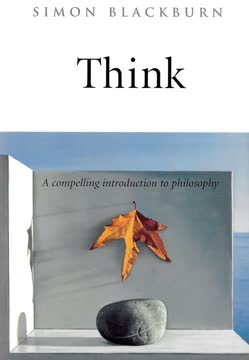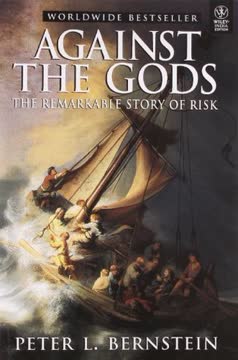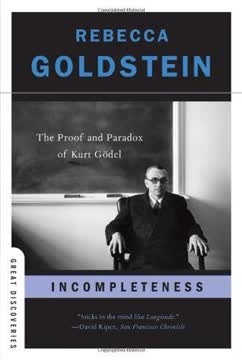Key Takeaways
1. Plato's enduring relevance in philosophy and modern discourse
"When we wonder whether we have at last grasped the truth or ought rather to hear further arguments from the other side, then there, too—always—is Plato."
Timeless questions. Plato's inquiries continue to shape contemporary debates on ethics, politics, and human nature. His exploration of concepts like justice, virtue, and the ideal state remain relevant in our modern world, influencing discussions on:
- The role of government and individual rights
- The nature of truth and knowledge
- The relationship between morality and religion
- The purpose of education and the pursuit of excellence
Philosophical foundation. Plato's dialogues laid the groundwork for Western philosophy, introducing key concepts and methodologies that continue to be used and debated today. His influence extends beyond academia, permeating popular culture and everyday discourse through ideas like:
- Platonic love
- The allegory of the cave
- The concept of ideals or "forms"
2. The Ethos of the Extraordinary in ancient Greek culture
"The unexceptional life is not worth living."
Cultural imperative. Ancient Greek society placed immense value on individual excellence and achievement, creating a culture that celebrated extraordinary feats and accomplishments. This ethos manifested in various aspects of Greek life:
- Athletics and Olympic games
- Artistic and literary pursuits
- Military prowess and heroic deeds
- Philosophical and intellectual achievements
Societal tension. The pursuit of excellence often clashed with the need for social cohesion and stability. This tension played out in Greek politics, literature, and philosophy, as exemplified by:
- The tragedy of hubris in Greek drama
- The debate between individual ambition and civic duty
- The philosophical exploration of virtue and the good life
3. Plato's transformation of aretē and the pursuit of knowledge
"For Plato, it's knowledge that does the filling in of the placeholder 'good.'"
Redefining excellence. Plato shifted the concept of aretē from external achievements to internal virtues and the pursuit of knowledge. This transformation had profound implications for Greek thought and Western philosophy:
- Emphasis on moral and intellectual excellence over physical prowess
- The idea that true knowledge leads to virtuous behavior
- The concept of the philosopher-king as the ideal ruler
Pursuit of wisdom. Plato argued that the highest form of knowledge was understanding the Forms, or perfect ideals, which could only be grasped through rigorous philosophical inquiry. This pursuit of wisdom involved:
- Dialectical reasoning and Socratic questioning
- The allegory of the cave as a metaphor for enlightenment
- The concept of anamnesis, or recollection of innate knowledge
4. The role of eros in Platonic philosophy and personal growth
"Eros alone can make us take passionate notice of something outside of ourselves, turn the vectors of our attention so that they are facing outward."
Transformative power. Plato viewed eros not merely as sexual desire but as a driving force for personal and philosophical growth. This expanded conception of love encompasses:
- The longing for beauty and goodness
- The pursuit of knowledge and understanding
- The desire for self-improvement and transcendence
Ascent of love. In Plato's philosophy, eros serves as a ladder leading from physical attraction to higher forms of love and understanding:
- Appreciation of physical beauty
- Recognition of beauty in souls and ideas
- Love of wisdom and the pursuit of the Forms
- Contemplation of the Form of Beauty itself
5. Socrates as a catalyst for philosophical inquiry and societal change
"Socrates was strange in a way that only those normatively at odds with their society are strange."
Gadfly of Athens. Socrates challenged the conventions and assumptions of Athenian society through his relentless questioning and unconventional lifestyle. His methods and ideas:
- Exposed the limitations of traditional knowledge and beliefs
- Encouraged critical thinking and self-examination
- Challenged the authority of established institutions and leaders
Philosophical legacy. Socrates' approach to inquiry and his emphasis on ethical living profoundly influenced Western philosophy:
- The Socratic method of questioning and dialogue
- The pursuit of moral excellence through self-knowledge
- The idea that an unexamined life is not worth living
6. The tension between individual excellence and societal norms
"There were some philosophical precedents for Socrates and Plato's philosophical deviation from the more general conceptions of outstandingness, though these didn't amount to the rejection of kleos as its measure, but rather a protest that philosophers ought to be accorded more kleos."
Redefining success. Plato and Socrates challenged the traditional Greek emphasis on fame and public recognition (kleos) as measures of excellence. They proposed alternative criteria for a life well-lived:
- Pursuit of wisdom and virtue
- Inner harmony and self-knowledge
- Alignment with universal ideals or Forms
Societal impact. This philosophical shift created tension between individual aspirations and societal expectations, leading to:
- Criticism of democratic practices and popular opinion
- Advocacy for rule by philosopher-kings
- The eventual trial and execution of Socrates
7. Alcibiades: A cautionary tale of unchecked ambition and charisma
"Alcibiades was never in love with Athens; he was, rather, intent that the Athenians should be in love with him."
Embodiment of excess. Alcibiades exemplified the dangers of unchecked ambition and charisma in ancient Greek society. His life serves as a cautionary tale illustrating:
- The corrupting influence of power and privilege
- The destructive potential of narcissism and self-interest
- The tension between individual brilliance and civic responsibility
Historical impact. Alcibiades' actions had far-reaching consequences for Athens and Greek history:
- His role in the disastrous Sicilian Expedition
- His defection to Sparta and subsequent betrayals
- The erosion of Athenian power and influence
8. The philosophical significance of beauty and its pursuit
"Beauty has a profound effect on us, drawing out from us our love. It is the one thing that can capture our entire attention because of our love for it, that is to say, the one thing, besides our own selves, to which we naturally and obsessively attend."
Gateway to truth. For Plato, beauty was not merely aesthetic but a pathway to higher understanding and virtue:
- Beauty as a manifestation of the Forms
- The connection between beauty, truth, and goodness
- The role of beauty in inspiring philosophical inquiry
Ethical implications. The pursuit of beauty had moral and social dimensions in Plato's philosophy:
- The idea that exposure to beauty can improve character
- The responsibility of artists and educators to promote true beauty
- The critique of art that merely imitates without understanding true Forms
9. Plato's critique of democracy and vision of the ideal state
"Is the best state the one that maximally allows aretē to exist and to flourish, where aretē is independently defined? Or is aretē to be defined in terms of the qualities that will allow a person to become justifiably notable in the polis, the qualities of an individual that best allow the values-setting polis to exist and to flourish?"
Flaws of democracy. Plato identified several weaknesses in the Athenian democratic system:
- Susceptibility to demagoguery and manipulation
- Lack of expertise in governance
- Prioritization of personal interests over common good
Philosopher-kings. Plato proposed an alternative system of government led by philosopher-kings:
- Rulers selected based on wisdom and virtue
- Rigorous education and training for leaders
- Alignment of individual and societal interests
10. The enduring value of philosophical dialogue and critical thinking
"Philosophical thinking that doesn't do violence to one's settled mind is no philosophical thinking at all."
Transformative power. Plato viewed philosophical inquiry as a means of personal and societal transformation:
- Challenging assumptions and preconceptions
- Developing critical thinking skills
- Pursuing truth and wisdom through rigorous questioning
Dialogic method. Plato's use of dialogue as a philosophical tool continues to influence education and intellectual discourse:
- Encouraging active engagement with ideas
- Exploring multiple perspectives on complex issues
- Fostering intellectual humility and openness to new ideas
</instructions>
Last updated:
FAQ
What's Plato at the Googleplex about?
- Exploration of Relevance: The book examines how Plato's philosophical ideas remain pertinent in modern society, especially in the context of technology and contemporary issues.
- Imaginary Dialogues: Rebecca Goldstein creates fictional dialogues where Plato interacts with modern thinkers, discussing topics like ethics, love, and reason.
- Philosophical Progress: It argues that philosophy, while seemingly stagnant compared to sciences, has evolved and integrated into our collective knowledge.
Why should I read Plato at the Googleplex?
- Engaging Narrative Style: Goldstein combines philosophical exposition with storytelling, making complex ideas accessible and entertaining.
- Timely Questions: The book addresses pressing contemporary issues, such as morality and technology, through Plato's philosophical lens.
- Deep Insights: Readers gain insights into knowledge, ethics, and the human condition, prompting reflection on personal beliefs.
What are the key takeaways of Plato at the Googleplex?
- Enduring Importance of Philosophy: The book emphasizes that philosophical questions are timeless and continue to challenge our understanding of morality and existence.
- Ethos of the Extraordinary: Goldstein contrasts the Greek concept of extraordinary lives with modern views on individual worth.
- Crowd-Sourcing Knowledge: The idea that collective wisdom can surpass individual expertise is explored, especially in the context of technology and ethics.
What are the best quotes from Plato at the Googleplex and what do they mean?
- "The unexamined life is not worth living.": This Socratic quote underscores the importance of self-reflection and philosophical inquiry for a meaningful life.
- "A person is a person.": Highlights the intrinsic value of every individual, reminding us of our shared humanity.
- "Knowledge is, in itself, a good thing.": Reflects the belief that pursuing knowledge enriches life and contributes to moral understanding.
How does Rebecca Goldstein portray Plato's character in Plato at the Googleplex?
- Complex and Relatable: Plato is shown grappling with his ideas, making him both a historical icon and relatable character.
- Philosophical Curiosity: Depicted as curious about modern society, eager to engage in discussions that challenge and adapt his ideas.
- Moral Integrity: His commitment to philosophical principles, despite societal norms, showcases his integrity and the challenges of being a philosopher.
What is the Socratic method as discussed in Plato at the Googleplex?
- Questioning as a Tool: Involves asking questions to stimulate critical thinking and illuminate ideas, encouraging examination of beliefs.
- Dialogue Over Debate: Fosters collaborative dialogue aimed at uncovering truth, valuing understanding over victory.
- Self-Reflection and Growth: Promotes personal growth by challenging assumptions and biases, leading to deeper self-awareness.
What is the "Alcibiadean Problem" mentioned in Plato at the Googleplex?
- Celebration of Individuality: Refers to challenges posed by celebrating individual extraordinariness, potentially leading to moral instability.
- Consequences of Antinomianism: Discusses how glorifying exceptional individuals can result in behavior disregarding societal norms.
- Need for Social Responsibility: Argues for balancing individual ambition with community responsibility, suggesting true greatness should benefit the common good.
How does Plato at the Googleplex address the concept of aretē?
- Definition of Aretē: Defined as excellence or virtue, particularly in fulfilling one's potential, central to Greek thought.
- Connection to the Polis: Emphasizes that individual excellence should serve society's greater good, highlighting the social dimension of virtue.
- Philosophical Implications: Encourages reflection on moral responsibility and the pursuit of a meaningful life through understanding excellence.
What is the Euthyphro Dilemma discussed in Plato at the Googleplex?
- Divine Command vs. Moral Worth: Questions whether actions are good because God commands them or if they are inherently good.
- Implications for Secular Ethics: Illustrates the need for a secular foundation for morality, suggesting ethical reasoning should be rational.
- Historical Significance: Influenced many thinkers and remains a critical point in moral philosophy and theology.
How does Goldstein connect Plato's ideas to modern society in Plato at the Googleplex?
- Philosophy in Everyday Life: Illustrates how Plato's ideas apply to contemporary issues like ethics and politics.
- Relevance of Socratic Inquiry: Emphasizes Socratic inquiry's importance in fostering critical thinking and self-reflection today.
- Cultural Critique: Critiques modern values, advocating for philosophical principles prioritizing moral integrity and communal responsibility.
How does Plato at the Googleplex address the relationship between knowledge and virtue?
- Knowledge as a Path to Virtue: Asserts that knowledge is essential for understanding virtue, preventing unethical behavior.
- Socratic Methodology: Illustrates how questioning fosters understanding of virtue, crucial for moral development.
- Interconnectedness of Knowledge and Ethics: Emphasizes that knowledge and virtue are intertwined, leading to ethical living.
What role does the concept of the "examined life" play in Plato at the Googleplex?
- Foundation of Socratic Philosophy: Central to Socratic thought, emphasizing self-reflection and critical inquiry for understanding and moral clarity.
- Contrast with Unexamined Existence: Contrasts with complacency and ignorance, leading to unfulfillment.
- Practical Application: Encourages self-examination for personal growth and ethical living, essential for a meaningful existence.
Review Summary
Plato at the Googleplex receives mixed reviews, with praise for its engaging concept of placing Plato in modern contexts and its accessible introduction to philosophy. Many appreciate Goldstein's well-researched historical context and her ability to make complex ideas understandable. Critics note the book's uneven pacing and occasional dry sections. Some disagree with Goldstein's interpretations of Plato's ideas. Overall, readers find the book thought-provoking, though opinions vary on its execution and appeal to different audiences.
Similar Books










Download PDF
Download EPUB
.epub digital book format is ideal for reading ebooks on phones, tablets, and e-readers.





